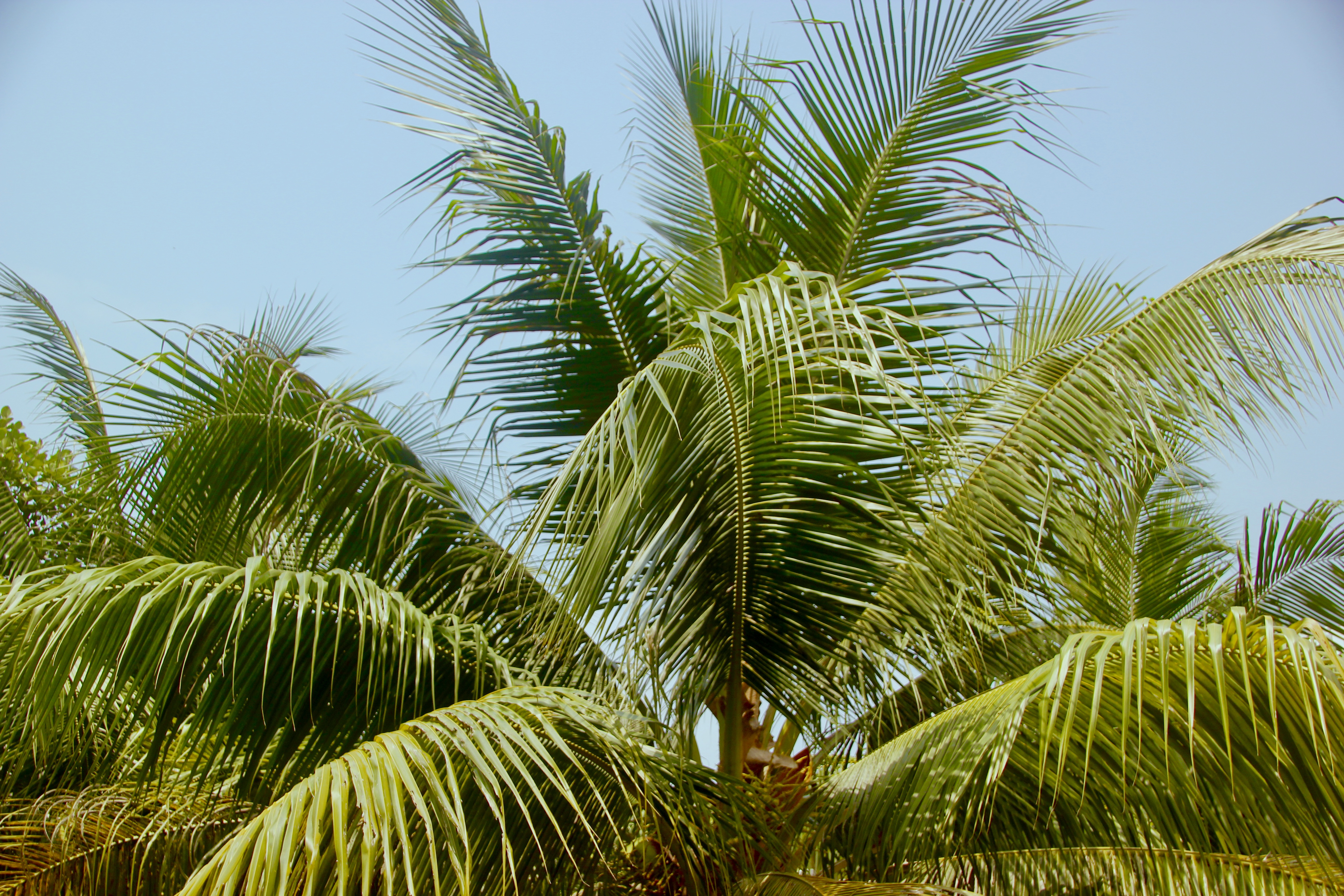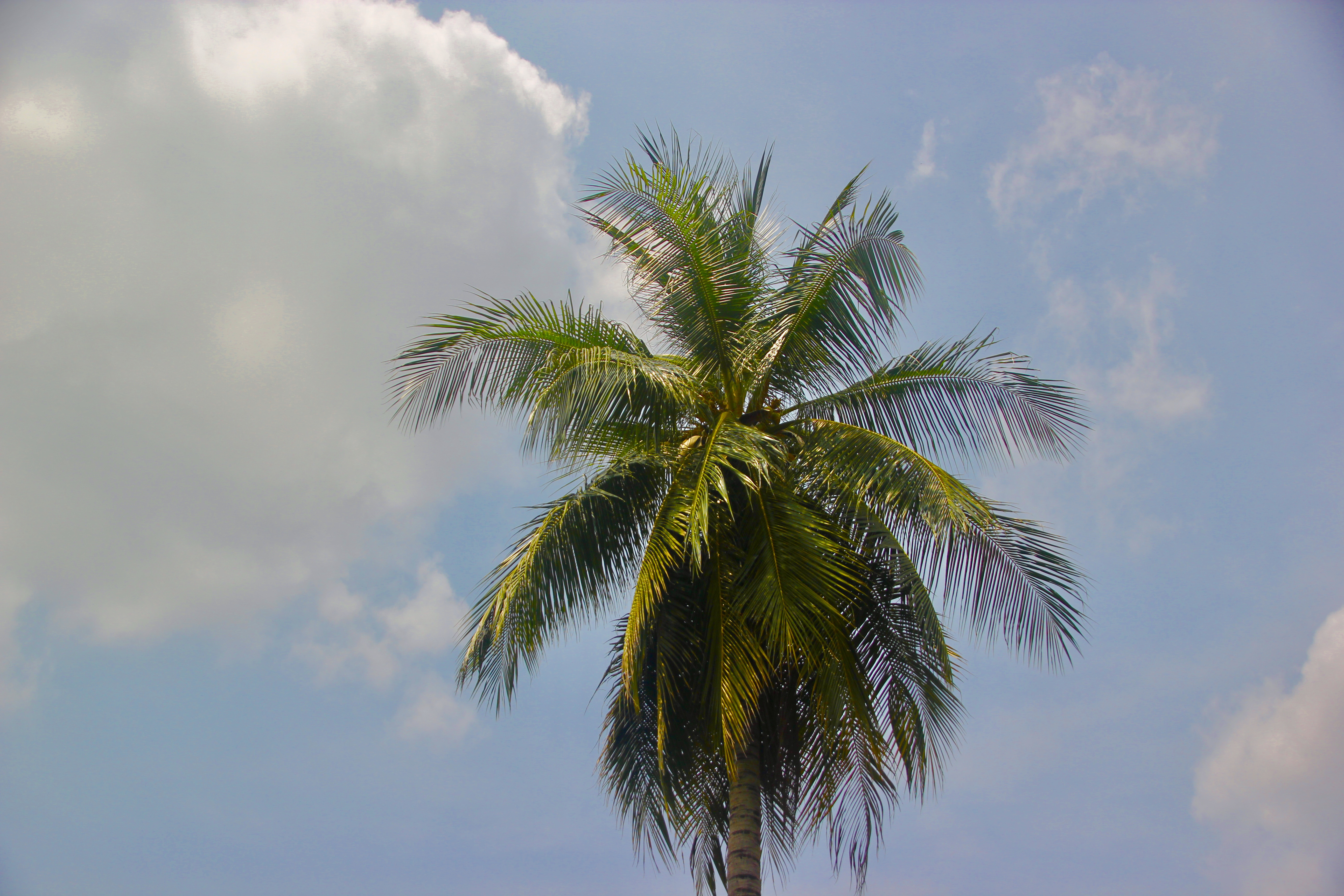The consumption of palm oil is on the rise and this adds a serious threat to the climate and many endangered species. Palm oil is found in almost half of all consumables in supermarkets, and boycotting is not the solution. Experts call for a sustainable palm oil production.

It is almost that season again. The haze is coming, covering the Singapore skyline like the tide covers fishing stakes. Miles away the smoke from the burning rainforests slowly approaches the city from both Malaysia in the North and Indonesia in the South. It is the season for palm oil production.
Makeup products, the soles of your shoes, chocolate and toothpaste – they all have that one thing in common: palm oil. It is found in almost half of all products we buy or use every day. In fact, palm oil is the most used vegetable oil.
But palm oil industry is bad news for orangutans. For local communities and indigenous people, for the climate, for the 371 Sumatran tigers left – and the list goes on. The palms grow best in low-lying, tropical areas, which is why rainforest land is burned off in favour of palm oil plantations. This may make you want to change to alternative vegetable oils such as soy or coconut oil

Alternative vegetable oil sources can make matter worse
However, this will most certainly add insult to injury. Palm oil is extremely versatile and oil palms are by far the most efficient oil-producing plants if you keep it up against the area it takes up. According to experts boycotting is not the solution.
The Wildlife Reserves Singapore (WRS) believes that boycotting of the palm oil industry will not be effective, instead they call for sustainable palm oil, and they are not alone in that opinion. World Wildlife Fund (WWF) recognizes that palm oil production has been a way out of poverty for millions across Southeast Asia.
“It makes a substantial contribution to many local and national economies, especially to those of Indonesia and Malaysia,” WWF states in their 2017 report.

From Southeast Asia to Scandinavia
While Malaysia and Indonesia account for 86 percent of all palm oil production, Singapore provides a base for international trading. And the consumers are to be found all around the world.
The Danish Bek-Nielsen brothers produce sustainable palm oil in Malaysia, and even though the expenses are higher it is indeed beneficial.
“Research has shown that consumers are willing to pay up to 10 percent more for sustainable products, especially products that do not contribute to deforestation and haze,” WWF states in the 2017 report.
Also, an analysis has shown that rainforests are worth more standing than cut down. And this year the Bek-Nielsen brothers made an all-time record profit of 600 million DKK after taxes. The brothers claim that the profit is a result of a series of green actions and a desire for sustainability among companies.
Still the haze is coming. Half a million people in Southeast Asia are expected to get haze-related respiratory illnesses this year, more rainforests will burn, and consumer awareness and demands seems to be the only solution.



If there are more Sara Brun Nielsen among white westerners, then the world could really make progress with poverty eradication, food security and energy security with sustainable & renewable palm biodiesel — as laid out in UN SDG goals.
More westerners need to realize that for every hectare of boycotted palm oil, the world needs to deforest 5~10 times more land & resources to plant soy, rapeseed or sunflower.
Europe could lead in sustainable crop production, by confirming that demand really exist for responsibly produced vegetable oil, even though soy and rapeseed oil are not certified — by buying that unsold stock of RSPO’s Certified Sustainable Palm Oil (CSPO).